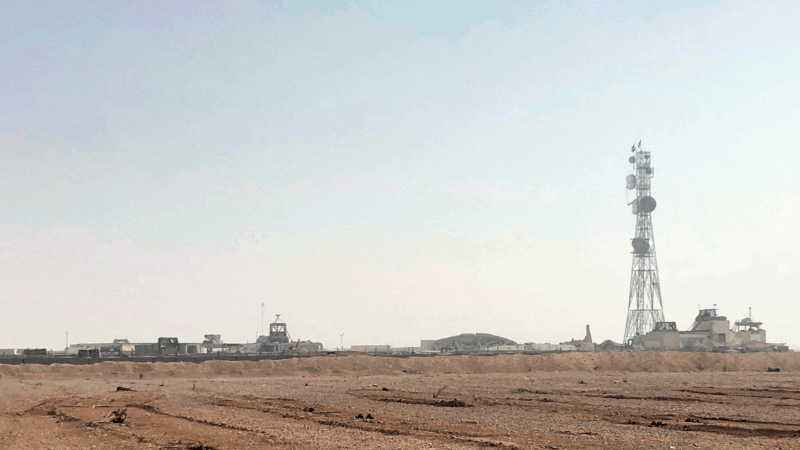Wide Awake
Bell: Not only am I watching TV, but I’m also listening to radio stations and also looking at the internet’ excuse me.
Bell was up till 3:30 in the morning early in the war. Since then he’s scaled back a bit ‘ hitting the sack between midnight and 1 a.m. ‘ but he concedes the late nights are taking a temporary toll on his job at WBHM.
Bell: Yesterday I was very groggy and not quite focused. It took me a couple of hours to get in gear for work.
At the Sleep Disorders Center of Alabama, medical director Robert Doekel says sleep deprivation is a big problem ‘ a 100 billion dollar a year problem, when you take into account medical costs and lost worker productivity.
Doekel: If a person gets so sleep deprived they may fall asleep standing up.
Usually, though, it’s a lot more subtle than that. A study in this month’s issue of the journal Sleep finds that people who sleep only four to six hours a night, instead of the recommended 8 hours, have shorter attention spans and slower reaction times. Doekel says most sleep deprived workers probably don’t even know they’re underperforming.
Doekel: And so if a person is sitting in front of a computer and they’re watching, they’re monitoring certain things happen, they’re actually having episodes of what we call micro-sleep. They may sit there and they may look like their eyes are wide open, but they’re missing the cue on the screen.
That means sleepy workers aren’t just inefficient ‘ they can be dangerous. The Chernobyl, 3 Mile Island, and the Exxon Valdez catastrophes have been tied to sleep-deprived workers. An estimated 40 million Americans are chronically ill with various sleep disorders. Twenty to 30 million more experience intermittent insomnia, especially in times of war or great stress. Still, Doekel says employers haven’t awakened up to the huge toll this takes on the workplace.
Doekel: There are a lot of operations that go 24 hours a day and they’ll have people who are working these varied shifts. Now the most insane thing in the world, I think, that someone ever came up with, are these rotating shifts’. One day the person may work a 7 to 3 shift and then they’ll work the 3 to 11 shift.. then they’ll work the 11 to 7 shift. And so their body never gets to adapt to a certain sleep wake schedule. It’s folly! It’s stupidity!
Workers who keep a more regular schedule may be lulled into thinking they’re getting enough sleep, but Doekel says there’s one sure fire test. If you need an alarm to wake up ‘ you’re not getting enough sleep!
For U.S. pairs skater Danny O’Shea, these Olympics are 30 years in the making
Danny O'Shea turned 35 at his first Olympics, after three decades of skating and two reversed retirements.
Want a mortgage for under 3% in 2026? Meet the ‘assumable mortgage’
Low mortgage rates from the COVID era might still be attainable for homebuyers, if they find the right house and have the cash.
Epstein files fallout takes down elite figures in Europe, while U.S. reckoning is muted
Unlike in Europe, officials in the U.S. with ties to Epstein have largely held their positions of power.
Four people on NASA’S Crew-12 arrive at the International Space Station
The crew will spend the next eight months conducting experiments to prepare for human exploration beyond Earth's orbit.
American speedskater Jordan Stolz wins second Olympic gold with 500-meter race victory
With the win, Stolz joins Eric Heiden as the only skaters to take gold in both the 500 and 1,000 at the same Olympics.
US military reports a series of airstrikes against Islamic State targets in Syria
The U.S. military says the strikes were carried out in retaliation of the December ambush that killed two U.S. soldiers and one American civilian interpreter.






